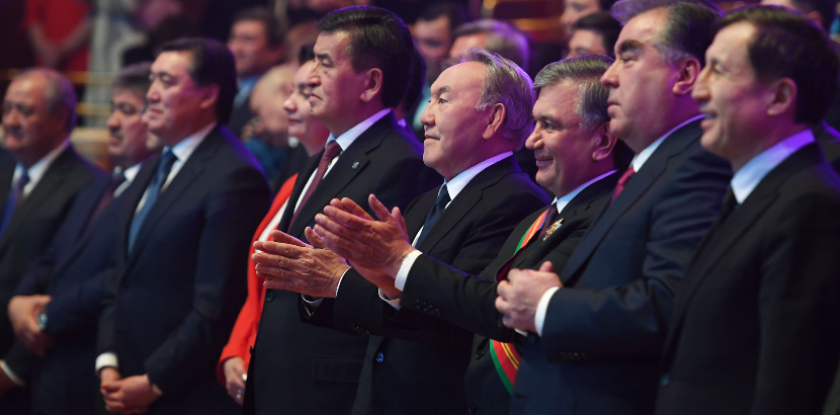The informal meeting of the leaders of the four Central Asian countries (Kazakhstan, Kyrgyzstan, Uzbekistan, and Tajikistan) and Head of the Turkmenistan Medzhilis held on March 15, 2018, in Astana is being discussed in the press rather vividly. The media give very different assessments of the meeting – from calling it “historical” to guessing against whom Nursultan Nazarbayev, Sooronbay Zheenbekov, Shavkat Mirziyoyev, and Emomali Rakhmon will “buddy up”.
So, let us remark on several crucial points.
First, it is the absence of Turkmenistan President Gurbanguly Berdymukhamedov from the meeting. Officially, it was due to the previously planned state-level engagements. But we believe it is only a pretext. However, the fact that Turkmenistan President sent to Astana not only Head of Medzhilis Akdzha Nurberdyeva but also his son Serdar Berdymukhamedov who met with Nursultan Nazarbayev separately and gave him personal respects from his father tells us that Turkmenistan is prepared to participate in such meetings but demands some additional concessions from the other participants.
Second, such meetings have only become possible thanks to the cardinal change of the Tashkent’s domestic and foreign policies after the death of Islam Karimov and Shavkat Mirziyoyev’s ascension to power. This conclusion is confirmed by the fact that there have been no significant changes in the domestic and foreign policy of the other countries of the region and the last meeting in this format was held in 2009.
Third, the fact that, initially, there was a plan to hold a summit among the five leaders speaks of Nursultan Nazarbayev’s and Shavkat Mirziyoyev’s eagerness to create a new interstate unity that can become an instrument of the interregional integration (at first, only of the economic nature) as well as the defense against the external pressure and even aggression. However, something did not let this plan to be realized, perhaps Gurbanguly Berdymukhamedov’s refusal to visit Astana. It is possible, however, that the suggested format was refused by Sooronbay Zheenbekov and Emomali Rakhmon due to the concerns about a negative reaction from Russia.
Fourth, the intention of the March 15 meeting participants to gather annually announced by Nazarbayev, on one hand, speaks of their desire to use the possibility to widen, deepen, and develop the interstate cooperation in the region, on the other hand, it testifies to the fact that they do not see good prospects in the multi-lateral format. Otherwise, the state leaders would agree to meet twice a year or even more frequently.
Fifth, a big influence on the future format of these informal meetings will be asserted by the interests of the key international “players” – Russia, China, the US, and the EU. It is already clear that Russia will be against it since the political and economic consolidation of these countries will inevitably lead to their defending their interests in a more assertive, rigorous, and consistent fashion relying not only on their own strengths but on the support of their neighbors.
Therefore, for this reason, the US, China, and the EU will be interested in supporting this format. With that, the US already has a working instrument for promoting and defending its interests in the region – the consultation mechanisms at the level of ministers of foreign affairs called 5+1. The January visit of Nursultan Nazarbayev to the US is a clear confirmation of the rise of the American interest in Kazakhstan. During the visit, Nazarbayev met with US President Donald Trump, US Vice-President Michael Pence, several ministers and representative of the US business circles.
We believe it is for this reason that, right after the March 15 meeting, Nursultan Nazarbayev wished Vladimir Putin to have success in the Russian presidential elections and tried to demonstrate that the event was in no way of the anti-Russian nature.
Since the next working session of the leaders of the five states (Kazakhstan, Kyrgyzstan, Uzbekistan, Tajikistan, and Turkmenistan) is to take place in the spring 2019 in Tashkent, it is clear that the cooperation between the countries will continue to be realized in the bi-lateral formats. Uzbekistan, under the leadership of Shavkat Mirziyoyev who de facto has started the reforms in his country and must now move in that direction as fast as possible to avoid the economic collapse, will remain the key participant (or perhaps even the driving force) of the meeting.




